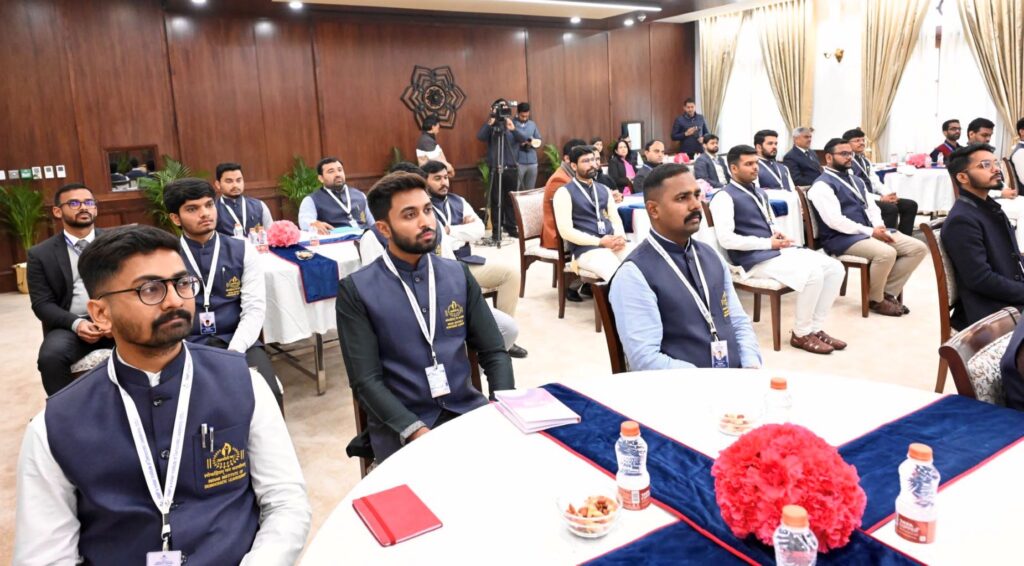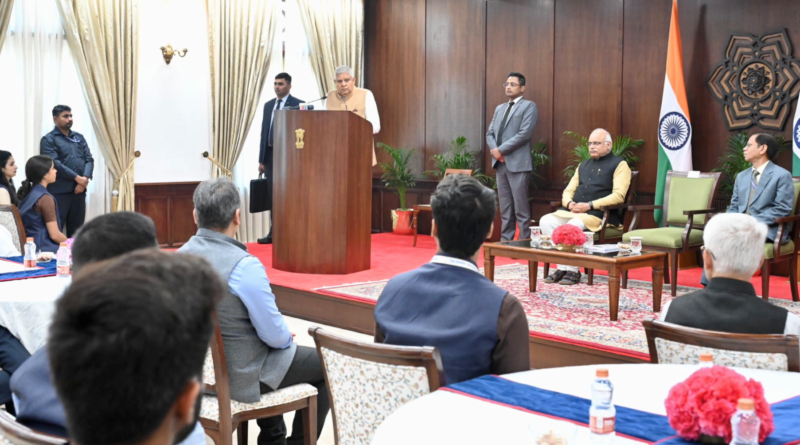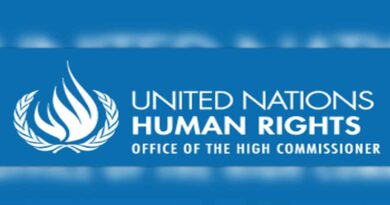Vice President Jagdeep Dhankhar Criticizes Disruptions in Parliament, Urges Accountability & Reforms in Political Culture
(Judicial Quest News Network)
Vice-President of India Jagdeep Dhankhar today expressed concern over the growing weaponization of judicial access, calling it a significant challenge to governance. During an interaction with a group of participants from the Indian Institute of Democratic Leadership (IIDL) at the Vice-President’s Enclave, he stated, “Access to the judiciary is a fundamental right in our country. However, in recent decades, this right has been weaponized. This weaponization has reached new extremes, posing a serious threat to our governance and democratic values.
Expressing his concern about the current state of affairs, he remarked, “Every day, we see advisories being issued and executive functions being carried out by bodies that lack the jurisdiction, legal authority, or competence to do so. To put it simply, a tehsildar can never file an FIR, no matter how strongly he may feel about it. Our Constitution mandates that institutions must operate within their designated domains. Are they doing so? I’ll answer that for you – no.”
He emphasized that institutions are conceding authority to other institutions out of expediency, warning that while such placatory measures may offer short-term benefits, they can cause irreparable harm in the long run. “Therefore, I urge you to reflect deeply. Once you reflect, connect with the people and make them aware. No nation is as rich in human resources as Bharat, but we must conduct an audit of ourselves. We cannot afford to rest on superficial laurels,” he added.
Questioning the necessity of the whip in Parliament, the Vice-President remarked, “Why should there be a whip? A whip limits expression and freedom; it forces representatives into servitude, preventing them from thinking for themselves. Consider whether the US uses a whip, and look at how decisions in the Senate over the past decade have been shaped by persuasion. When a whip is issued, persuasion is eliminated. Who are we trying to persuade? Political parties are meant to foster democracy, yet do elected representatives truly have the freedom to express themselves? The whip stands in the way.
Reflecting on the growing disruptions in Parliament, Vice President Shri Jagdeep Dhankhar expressed deep concern over the erosion of democratic values in the country’s legislative institutions. “What was once revered as the temple of democracy has now degenerated into a wrestling ground, a battleground,” he remarked. “Is there anything left to see or hear? People have forgotten the essence of ‘decorum,’ and the concept of dignity is fast disappearing.”

Shri Dhankhar went on to highlight the concerning trend of chaos, disruption, and disorder within the House. “The disturbances we witness in Parliament are not spontaneous; they are remotely controlled,” he said. “There are those who enter this sacred space with a determined agenda—to make the day one of dysfunction, turning it into a day of legislative paralysis.” He urged the public to critically examine this situation and reflect on the impact it has on the functioning of the democratic process.
Addressing the young minds present, Shri Dhankhar urged them to take an active role in holding public representatives accountable. “You are a powerful pressure group, and social media has amplified your voice,” he said. “You now have the ability to audit Parliament, scrutinize the performance of institutions, and assess the actions of elected officials. You can hold a mirror to those who, instead of fulfilling their constitutional duties, indulge in behaviours that no parent would want their child to witness. This scenario must change.”
Emphasizing the need for capable and knowledgeable individuals in politics, the Vice President said, “We need trained people in policy-making—individuals who understand the intricacies of governance. Holding the government accountable is not an easy task. The only way to ensure accountability is through the platform of the legislature. And when you hold the government accountable, you are actually helping it improve. Everyone wants to better themselves, but someone must point out the areas where improvement is needed.”
Shri Dhankhar also expressed concern over the deteriorating political climate in the country. “We take immense pride in being the mother of democracy, but are we truly justifying that claim?” he asked. “The political environment is increasingly worrisome. Political parties are failing to engage in meaningful dialogue. There is a lack of deliberation on key national issues such as security, development, and nationalism. Instead, we see a solidifying confrontational stance, where disturbance is weaponized as a political strategy. The language used across the political spectrum—left, right, and center—not only diminishes the intellect of the Indian people but tarnishes the reputation of our civilization.”
The Vice President raised alarm over the diminishing space for constructive expression and dialogue, which are the bedrock of any thriving democracy. “I am concerned that these fundamental democratic values are fast receding into the background,” he said. “People have become judgmental, adhering to the belief that ‘I am right and everyone else is wrong,’ without bothering to listen to alternative viewpoints.”
Turning to the issue of public property and lawlessness, Shri Dhankhar condemned the growing trend of destruction and violence. “The destruction of public property, stone pelting on trains, and the setting of government buildings on fire is deeply troubling,” he stated. “Where are we heading as a society? We must rise as one to name and shame those responsible for such actions. The system must work to ensure that those guilty of damaging public property are held accountable and penalized accordingly.”
Shri Dhankhar also emphasized the need for society to reject the disturbance of public order, particularly when such actions are orchestrated for political gain. “Why should we tolerate the disruption of public order?” he asked. “When a lawful authority issues a notice to a politician and people take to the streets, it is an act of savagery. It is a violation of the law and a disrespect for democratic norms. Yet, we allow it to continue. Public order is the foundation of democracy. When disorder is orchestrated to demonstrate an individual’s power—paralyzing daily life, blocking traffic, and disrupting public services—it cannot be allowed to go unchecked.”
In closing, Vice President Shri Jagdeep Dhankhar called for a renewed commitment to the principles of democracy and the rule of law. He urged citizens to actively participate in shaping a political culture that upholds dignity, encourages constructive dialogue, and prioritizes the welfare of the nation above individual or partisan interests.


